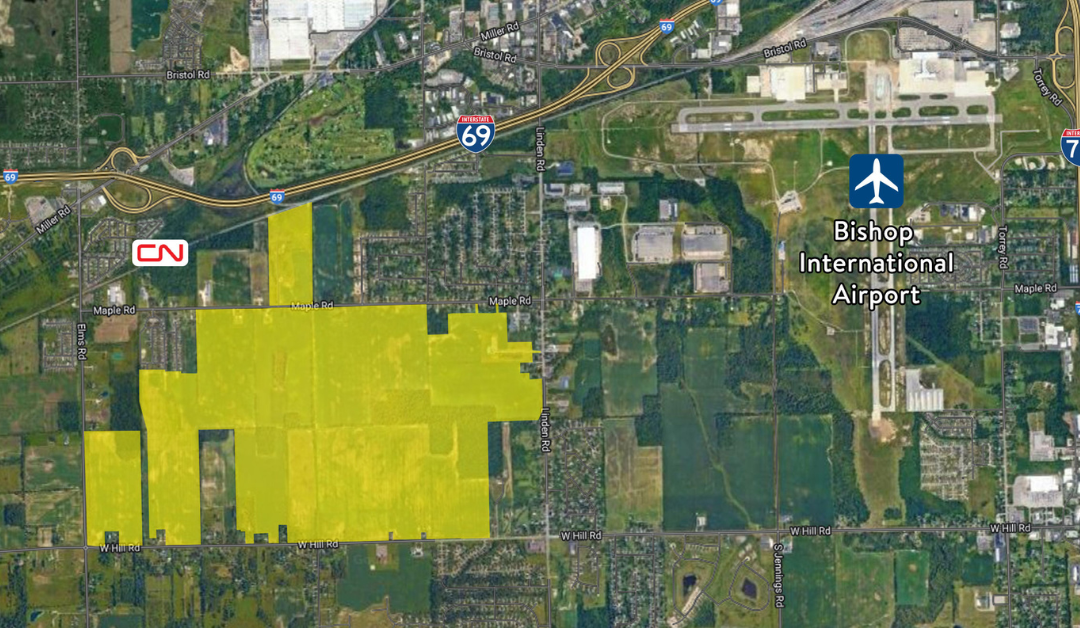
Gov. Gretchen Whitmer signs a bipartisan budget bill to promote economic development and create jobs—among many other things—in Michigan. (Courtesy/Gov. Gretchen Whitmer)
LANSING—Gov. Gretchen Whitmer signed legislation this week designed to encourage economic development in the state and bring thousands of new jobs to Michigan.
The bipartisan budget bill sent state cash in a lot of different directions—including new funds designed to improve retention in the healthcare industry, lower the cost of home repairs, and incentivize the development of more affordable housing, among many other things.
“I’m proud to sign this bipartisan legislation to grow our economy, protect public health, and lower costs for families,” Whitmer said in a statement. “We are coming together to recruit and retain health care workers, invest in regional economic development and infrastructure to secure thousands of good-paying American manufacturing jobs, and lower utility costs for families.”
Here’s a quick overview:
An Electric Future
The biggest ticket item included in the legislation was nearly $630 million in tax incentives to help cover infrastructure improvements in the city of Marshall—namely to help prepare the area for a new electric battery manufacturing facility being built by Ford Motor Co.
Once completed, the massive manufacturing facility is expected to create 2,500 new manufacturing jobs and help secure Michigan’s place in the electric vehicle supply chain. Funds will also be used to add two lanes to M-96 and make other road improvements in the area.
“This historic opportunity is an investment in people,” Rep. Jim Haadsma (D-Battle Creek) said in a statement. “I’m so pleased Ford Motor Company chose Calhoun County and I’m confident this influx of good paying jobs will put people on notice that Michigan is on the right track.”
Added UAW President Ray Curry: “Our union is grateful to the governor for her commitment to strengthening the automotive industry and keeping jobs in Michigan. This will benefit workers.”
Help for Healthcare
The bill also provides $75 million for health care systems to increase wages for their staff and provide retention bonuses, as well as offer tuition assistance and student loan support. Another $63.5 million will increase wages paid to nursing home providers through Medicare by 2%.
Additionally, $750,000 in grants will be delivered to groups that provide outreach for suicide prevention services—specifically to launch new resources for veterans, who are 57% more likely to commit suicide compared to those who haven’t served, state officials said.
Curbing Gun Violence
The bill is also designed to improve public safety following rising rates of gun violence in Michigan. Nearly $11 million was earmarked to launch a new “Violence Intervention” initiative that provides grants to community-based organizations dedicated to interrupting violence.
Moms Demand Action Founder Shannon Watts said the programs often serve as the “bedrock of the gun safety movement” and need to be properly funded in order to be effective.
“Addressing the gun violence epidemic means applying a holistic approach. This includes focusing on addressing daily gun violence, which kills far more people than mass shootings, and disproportionately affects communities of color,” Watts said in a statement.
Neighborhood Development
The legislation also earmarked $150 million to build more affordable housing across the state, as well as $212 million for home energy rebates for home appliances, heating and cooling systems, electric vehicle chargers, and solar installation and battery storage.
Another $60 million in grants were set aside to help governments, nonprofit organizations and faith-based groups develop more community centers—with a requirement that at least half of them be awarded to low-income areas, or groups disproportionately impacted by the pandemic.
“Many of our facilities are old and need a lot of work. Grant funding like this will be welcome by communities across the state as we continue to meet the needs of people of all ages,” Brett Kaschinske, director of parks and recreation for the city of Lansing, said in a statement.
Politics

Michigan lawmakers look to break (another) state funding record for public schools
Democratic lawmakers are hashing out plans to bring state funding for Michigan’s public schools to another new, all-time high—and ensure teachers...

Mundy Twp. project gets state funding in effort to boost local manufacturing
More than $9 million awarded to a planned development project in Genesee County could provide a big boost to the local economy and help create...

It’s official: Your boss has to give you time off to recover from childbirth or get an abortion
Originally published by The 19th In what could be a groundbreaking shift in American workplaces, most employees across the country will now have...
Local News

More Michigan teens could soon take driver’s ed in their own schools
Privatization of driver’s education means that only 38 Michigan high schools offer affordable in-school driving classes for students. New grants...

That one time in Michigan: When we became the Wolverine State
How did Michigan become tied to an animal that's practically nonexistent there? Among the many nicknames that the state of Michigan has, arguably...






